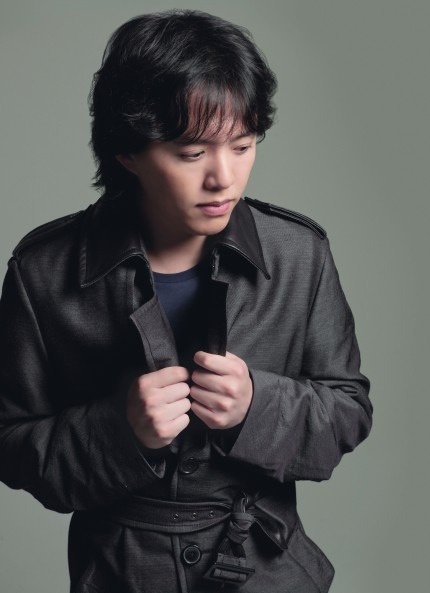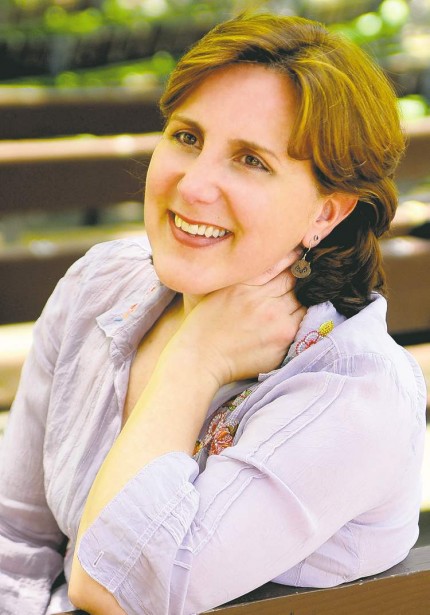Yundi and The Knights make for rich and rewarding double bill at Ravinia
It was a starry Sunday at the Ravinia Festival’s Martin Theatre. In the afternoon, celebrated pianist Yundi took the stage to present a rich all-Romantic program, followed by an appearance by soprano Dawn Upshaw with The Knights, a New York-based chamber orchestra.
Though both Upshaw and the Knights are familiar faces at Ravinia, Sunday’s recital marked Yundi’s festival debut. The 32-year-old pianist—a first prize winner in the 2000 Chopin International Piano Competition—is a celebrity in his native China, where he enjoys the kind of attention lavished on pop musicians and movie stars in the states. The Martin Theatre was filled to capacity for Sunday’s recital, with more than half of the seats filled by his Chinese-American fans.
Even with the heavy advance anticipation, hearing Yundi perform felt like a fresh revelation. He approached each piece with a taut sense of inner drama, knowing that one doesn’t need soap-opera bathos to underscore the tumult already present in the score.
The program began with two Chopin nocturnes, No. 1 in B-flat minor and No. 2 in E-flat Major. Both were marked by a sensitive touch and tasteful, elastic rubato. The lissome Andante spianato showcased nimble fingerwork, exploding into grand chordal fireworks in the Grande polonaise brillante. All were played with a probing curiosity, as though Yundi discovered beauty within the music of his favorite composer anew as he played.
With Beethoven’s F-minor “Appassionata” Sonata, Yundi obeyed the Allegro assai directive of the opening movement rather literally, taking even its brooding opening arpeggios at a quick pace. Here, Yundi proved himself as an artist of both finesse and sheer power: When he launched into the fortissimo, syncopated chords after the first fermata, the sound created was so immense that it elicited an awed interjection from an audience member.
The same knack for dynamic contrast returned in the Schumann Fantasie in C, but much like the “Appassionata,” Yundi’s well-honed, ebb-and-flow phrasing lent the work a natural sense of architecture, never feeling overwrought. The lullaby-like final movement ended in an atmosphere reminiscent of the Chopin nocturnes which began the program, offering a welcome respite from the fiery Sturm und Drang of the rest of the program.
An electrifying rendition of Liszt’s Tarantella from Venezia e Napoli concluded the program.
_________
The Knights’ performance—given in the same hall a few hours later—proved equally memorable. The self-described “orchestral collective” have been Ravinia regulars since 2010, and this summer’s program brought a nicely varied program of folk-inspired selections from different cultures.
While music by Dvořák and Schubert was represented, the program was still adventurous by Ravinia standards, with all five works receiving their festival debut, said co-artistic director and concertmaster Colin Jacobson.
Dvořák’s Czech Suite in D Major kicked off the program, with Jacobson’s brother and co-artistic director Eric taking the podium to conduct. The opening Pastorale sounded a bit stale, but by the second-movement polka, the orchestra was decidedly more locked-in and comfortable.
A clear highlight of the first half was Luciano Berio’s exquisite and eclectic Folk Songs. Composed in 1964, the song cycle was a microcosm for the Knights’ entire program, being comprised of settings from seven different regions and sung in multiple languages.
Dawn Upshaw rose to the considerable challenge with a versatile, earthy tone that naturally adapted to the distinct idioms of each piece. Her unassuming, colloquial delivery perfectly fit Berio’s folkish themes—even though some of the songs had actually been composed by Berio himself.
In the second half, the ensemble condensed into a string quintet with double bass for masterfully arranged selections from Zhou Long’s Eight Chinese Folk Songs. Yet another high point of the evening, the songs burst with rhythmic inventiveness and lushly pentatonic sonorities.
Ligeti’s Concert românesc was a sensuous treat, beginning tunefully and progressing into more atonal trenches. Eric Jacobson returned to the podium for this final offering, directing the ensemble in a supple, gestural style.
Yet it was Schubert’s Five German Dances that proved especially endearing. Performed without a conductor, the musicians played off each other with rapt attention and broad smiles from beginning to end.
It’s no surprise The Knights came into being after informal late-night chamber music readings at the Jacobsons’ home. The young artists play with an easy camaraderie that feels as genuine as it is singular. It’s as though they are perpetually playing among friends—probably because they are.
Posted in Performances




